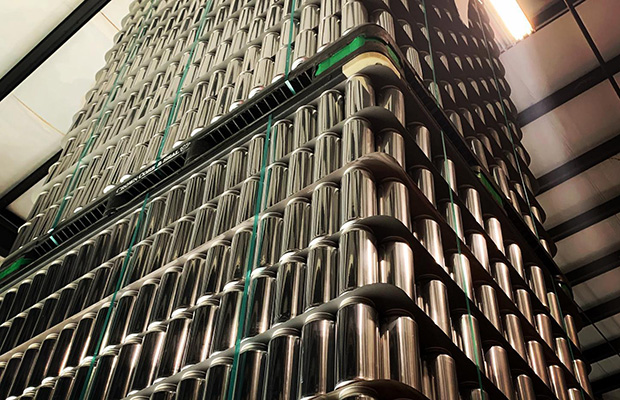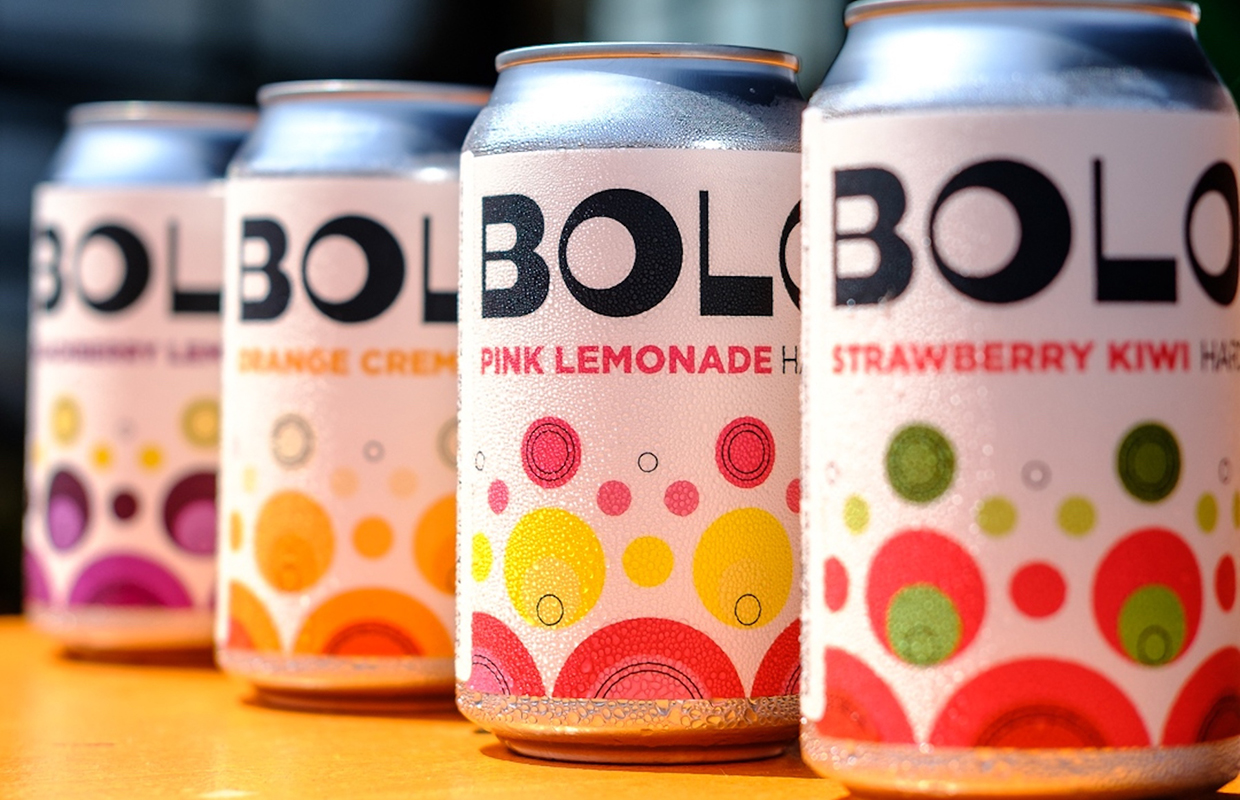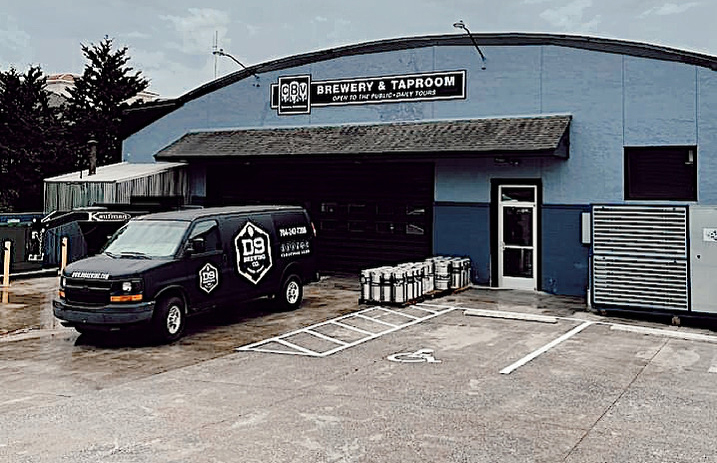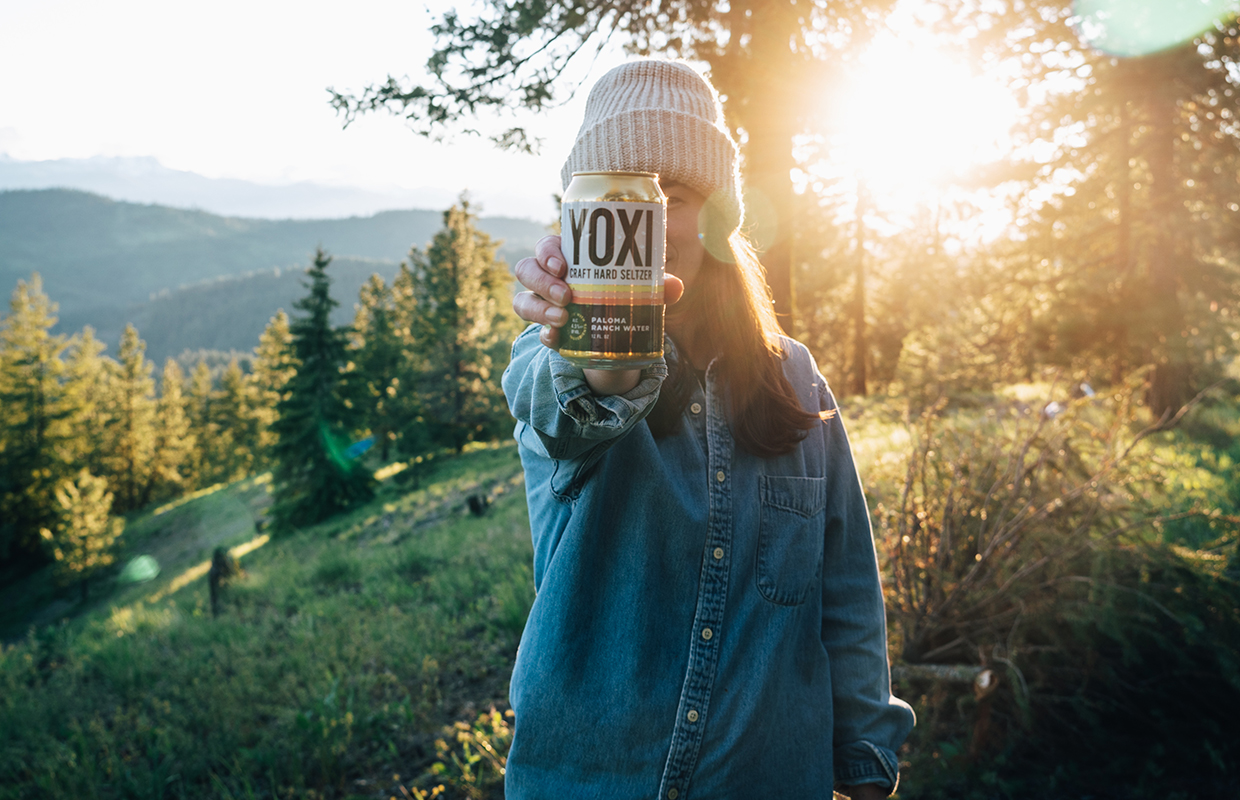
Space constraints in growth can be common. What was once a spot for grain became another tank. Where you kept kegs last month is now becoming a spot to house a mobile canner or even your own new canning line. Where do all these cans go? It’s a constant struggle even after a canning day as fresh cans need a home as well until sent out to market.
Working with a can broker can help in getting what your brewery needs when it needs it and helping save on physical storage space.
Ecliptic has been working with a broker since 2017 to maintain inventory. Because its rate of sale in the summer for its flagship IPA would require the Portland, Oregon brewery to keep about 75-100 pallets of inventory in-house for just that single brand, it ties up a lot of capital upfront, explained Packaging Manager Grant Smith.
“We pull 10-20 pallets a week of what we need and pay as we receive it,” he said of the agreement. “Having someone else to focus on all of the issues that have come up this year with shortages and trying to find can suppliers overseas has allowed us to focus on what we do best: brewing and packaging amazing beer.”
Working with brokers and knowing your place in their size of breweries they work with can help at the start of ordering, explained Lone Pine Brewery co-founder Tom Madden.
The Portland, Maine brewery — which produced around 15,000 barrels per year — is one of the largest clients for the broker, which he said helps gain some sway.
”[They have] much bigger buying power with Crown and Ball than we would on our own,”
Madden said of contracting for a year with the broker. “And within that intermediary, we’re one of their biggest customers. So we have massive importance to them.
“While they have more importance than we would have on our own it helps us leverage ourselves with the supply. So we’re fortunate there.”
Warehouse space is a solution many turn to and negotiating a deal that maximizes the best value.
The bulk of Two Brothers’ cans are stored in the manufacturer’s warehouse and co-founder Jason Ebel said they only bring in cans on an as-needed basis. The Chicago-area brewery also has a sizable warehouse, Ebel added.
“Storage is not much of an issue, fortunately, but off-site storage definitely helps.”
The same holds true for Urban Artifact Brewing said Brewing Operations Manager Bret Kollmann Baker. He said that they found a local warehousing company, negotiated rates, and currently store all empty cans there at a rate that he feels ‘is extremely competitive.’
Urban Artifact stores its final product on-site because Baker said they feel they can maintain control of product quality best until it leaves to its distributor partners.
Madden said Lone Pine is looking for an off-site warehouse space this winter, just for extra cans and dry goods.
”We are kind of bursting at the seams here,” he said of the property the brewery took over from Sebago Brewing in 2019. ”Everything from there that isn’t needed right now — or this coming week for brewing — is gonna end up on an off-site.
“We’ve kind of grown in the best way we can right now.”






1 Trackback / Pingback